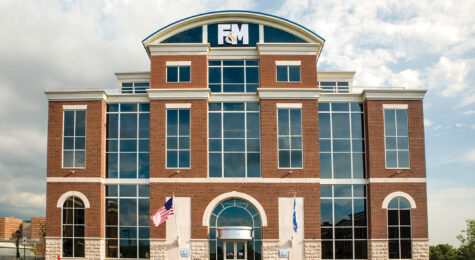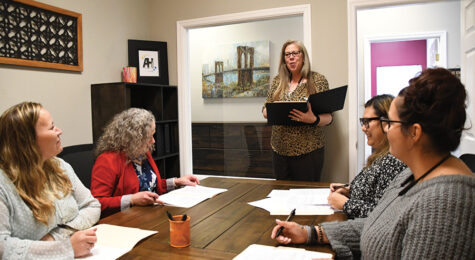MTSU: Where Education Meets Real-World Experience
Impressive new facilities help MTSU draw attention to cutting-edge R&D programs, as well as innovative new initiatives designed to give students a head start in the real world.

On October 15, 2014, Middle Tennessee State University (MTSU) opened its state-of-the-art science building to rave reviews from students and faculty alike. The new building is a game changer for the university, not just because of its facilities, but also because it is drawing attention to cutting-edge research and development work being conducted by MTSU faculty and students across a range of scientific disciplines.
Research projects under way at MTSU’s College of Basic and Applied Sciences include work by Dr. Daniel Erenso in the physics and astronomy department on an experimental technique to “grasp” individual red blood cells with a laser beam – technology that could aid in the treatment of sickle cell diseases – and the development of zinc-based biosensors by Dr. Charles Chusuei in the chemistry department that could improve devices used in medicine and food safety.
There is also work being done by Dr. Charles Perry and his research team in the engineering technology department on a retrofit wheel-hub motor that converts a gas-powered vehicle into a plug-in hybrid, and development of unmanned aerial systems in the aerospace department, which is also known for its 360-degree wraparound simulator that provides future air traffic controllers with advanced training.
“The new science building has allowed us to showcase what were already awesome programs,” says Bud Fischer, dean of the College of Basic and Applied Sciences. “It has changed people’s image of us. We are now looked at as a player, not only in teaching but also in research.”
The 257,000-square-foot complex includes 36 teaching laboratories, 13 research labs and six classrooms, as well as office space for biology and chemistry faculty and staff. Naturally, the facility features the latest in ultramodern equipment, but what distinguishes it from other buildings is how it is designed to foster collaboration between faculty and students, both inside and outside the classroom.
The floor plan includes numerous informal learning spaces outfitted with floor-to-ceiling whiteboards and flat-panel displays, which encourage cross-disciplinary scientific discussions. The building also includes several large research labs where faculty researchers and their teams can collaborate as groups, facilitating increased research productivity.
Laying the Groundwork
One of the college’s most innovative research is taking place in the biology department’s Tennessee Center for Botanical Medicine Research in the biology department. The center is working with the Guangxi Botanical Garden of Medicinal Plants in Nanning, China, to take extracts from plants and screen them for anti-carcinogenic, antiviral, antibacterial or anti-inflammatory properties. The goal is to identify extracts and pure compounds that show promise in the treatment of cancer and other medical conditions, in hopes of developing new drugs to treat those ailments.
“We are currently working with 20 extracts that have been identified as promising for a variety of different diseases, along with 20 pure compounds and counting,” says center director Dr. Elliot Altman.
Thanks to a recent extension of the center’s exclusive partnership with Guangxi, that research is set to continue until at least 2021.
The center has also launched an initiative that encourages local farmers to grow ginseng and educates them about the economic opportunities for the over-the-counter supplement. Ginseng is worth $340,000 per acre compared to corn, which brings in just $640 per acre.
A Firm Foundation
MTSU’s pioneering Concrete Industry Management program is changing the reputation of what is “perceived as a dirty, long-hours industry that doesn’t look clean or professional enough for a college graduate to want to get into,” says department chair Dr. Heather Brown, who notes that “there is a way to be in this industry that is white-collar.”
Not only does MTSU’s program prepare students to work for the proverbial “big contractor,” Dr. Brown says, but it also provides training and hands-on experience to students interested in the sales, production and service aspects of the industry.
Because there is a shortage of qualified young professionals entering the concrete industry, graduates of the program can often pick and choose from lucrative job opportunities.
“Right now we have about 50 graduates a year, and this year we posted over 200 jobs,” Dr. Brown says. “We need more students because there are many more jobs than students.”
Learn more about workforce development in Rutherford County, TN.



